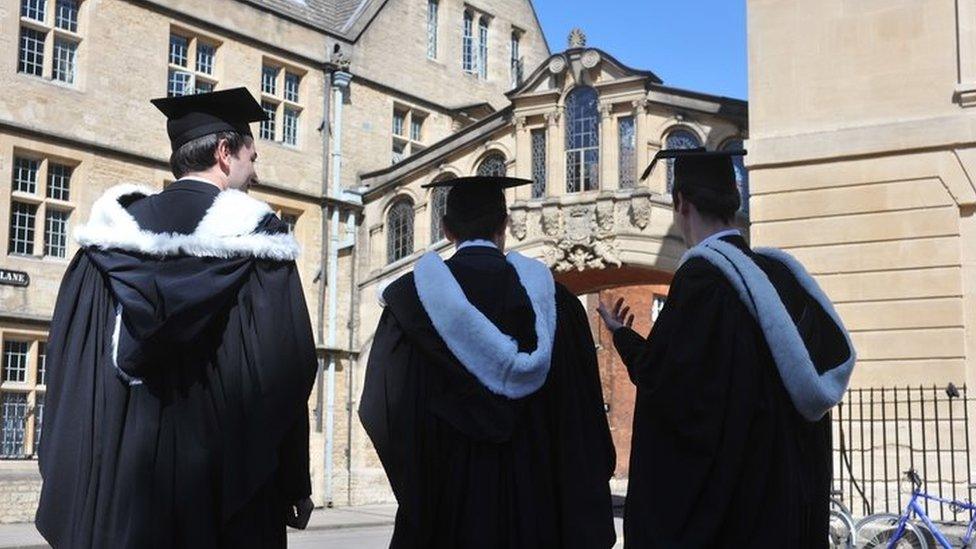Black workers 'earning less than white colleagues'
- Published

Some graduates earn more than others
Black workers earn much less than similarly qualified white workers, at all levels of education, research suggests.
Analysis of pay data by the Trades Union Congress (TUC) suggests that the difference in average pay rates amounts to a gap of 23%.
Black graduates earn on average £14.33 an hour, compared with £18.63 earned by white graduates, the TUC says.
The average pay gap between black and white workers with A-levels is 14%.
And at GCSE level the gap is 11%, the TUC says.
The TUC's general secretary Frances O'Grady said: "Race still plays a huge role in determining pay.
"The harsh reality is that at any level of education, black and Asian workers are getting paid less than their white counterparts.
"The government cannot afford to ignore these figures and must now take genuine action to tackle pay discrimination."
'Interventions needed'
The Runnymede Trust, a leading race equality think tank, has previously found that pay gaps are not due to the type of university attended, as they even extend to black workers with degrees from the most selective Russell Group of universities.
In fact the TUC's analysis, based on the Labour Force Survey, external figures from 2014 and 2015, shows the pay gaps are widest for those with higher qualifications.
"This suggests that education alone will do little to address racial inequalities, and the need for interventions that directly challenge racial inequalities in the workplace," the TUC said.
The trade union umbrella body is calling on the government to recognise the scale of the problem and to urgently develop a race equality strategy.
As part of an anti-discrimination drive announced on Sunday, David Cameron said universities in England would be forced to disclose the proportion of ethnic minority applicants who get places.
The prime minister said transparency would force top universities like Oxford to work harder to broaden their intake.
- Published31 January 2016

- Published18 November 2015
